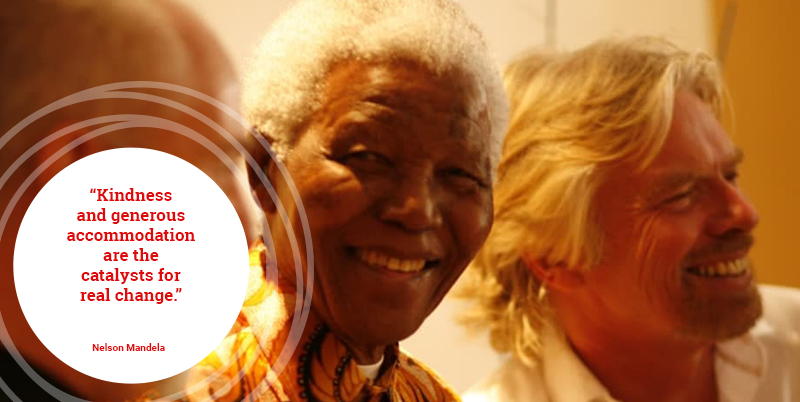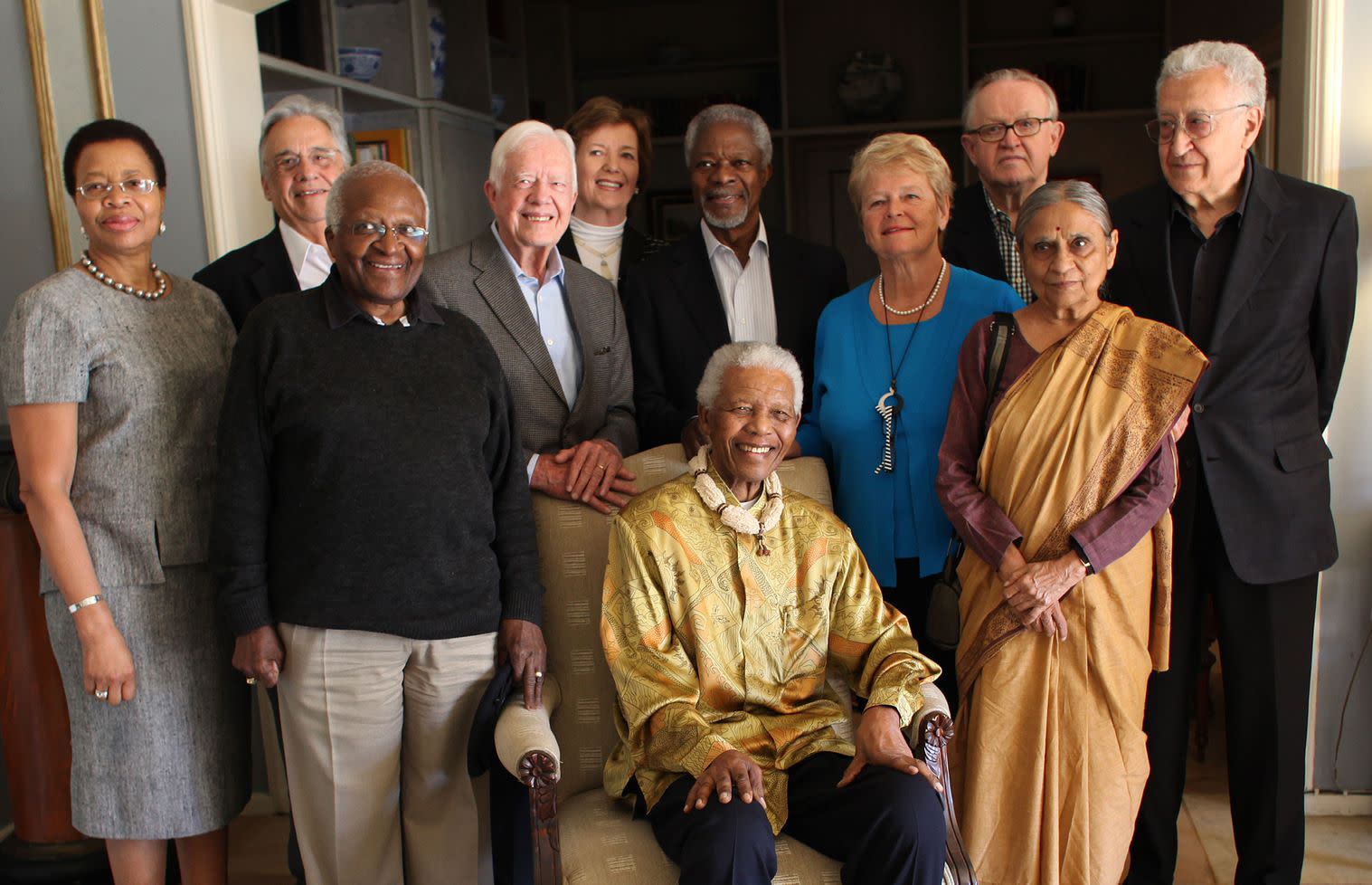Incubate Courageous Collectives
The Elders
Back to our workWhat is The Elders?
The Elders is a group of independent global leaders working together for peace and human rights. Virgin Unite, together with an incredible group of partners, incubated The Elders ahead of its launch in 2007.
It was formed after Richard Branson and the musician Peter Gabriel took their idea to Nelson Mandela – proposing the formation of a group of experienced global leaders who could use their collective influence and know-how to tackle some of the world’s biggest challenges.
On his 89th birthday, 18 July 2007, Nelson Mandela announced the formation of The Elders: as a small dedicated group of leaders who will work objectively, free from any vested personal interest, to help address global challenges.
Since launch, The Elders have been independent and free from the constraints of office – drawing on their own experiences of leading positive change. They remain committed to empowering the voiceless and the marginalised, especially women and young people.
Working both publicly and through private diplomacy, The Elders engage with global leaders and civil society to help resolve conflict and address its root causes. They challenge injustice, promote good governance and inspire ethical leadership.
Mary Robinson, the first woman president of Ireland, is the current chair of The Elders. The former chairs of The Elders were Archbishop Desmond Tutu (2007-2013) and Kofi Annan (2013-2018).
What does The Elders do?
The Elders contribute to addressing some of the challenges of leadership, peace-building, inequality, exclusion and injustice in a rapidly-changing world.
Its key programmes include:
Ethical leadership and multilateral cooperation – supporting international cooperation and strong multilateral institutions as the most effective ways of tackling global challenges, including nuclear disarmament.
Conflict countries and regions – assisting in efforts to secure peaceful resolution to conflicts through quiet diplomacy and a willingness to talk to all sides.
Universal health coverage – making global and country-level interventions to support UHC in the broader context of pandemic preparedness and response, and the Sustainable Development Goals.
Climate change – helping ensure a just transition to the low carbon economy, creating political space for ambitious action, and encouraging new solutions.
Access to justice – working with governments and civil society to make the right to access to justice a reality for all.
Refugees and migration – championing the need for compassion, tolerance and solidarity in response to vulnerable people on the move.

